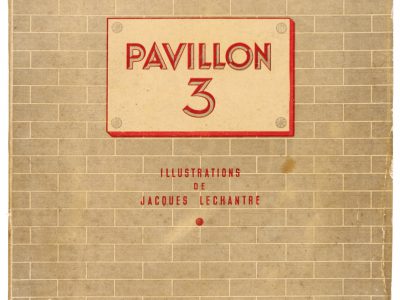1944
Pavillon 3 is published along with a series of articles in Pour l’enfance coupable (published by the Ministry of Justice for the study and prevention of crime), with Paul Guilbert (director of the IMP). Lille is liberated in September.
1943
Deligny leaves Armentières and returns to Lille. The Vichy government makes him director of juvenile delinquency prevention in the North region. The Regional Association of Childhood and Adolescent Protection (ARSEA) is created and Deligny assumes the role of technical advisor.
1941-1942
The asylum is bombarded. Deligny becomes an educator in Pavillon 3, where he is responsible for children considered “impaired and impossible to educate.” There, he declares the end of punishment and organizes workshops, games and walks with guardians (unemployed workers, artisans, former convicts). In 1942 he earns his credentials to..Read More
1939-1940
Deligny is called up to serve in the infantry regiment of Lille, which sets out for the Netherlands. The following year, after armistice (with French defeat and German occupation), he is released and returns to Armentières (now under German control) and resumes his activities at the Medical Pedagogy Institute/IMP (for..Read More
1937-1939
Deligny lives in Paris with Josette Saleil, whom he met in Lille. In 1938, the father of François Châtelet (Deligny’s childhood friend) offers him a post as a substitute teacher in the primary school on Rue de la Brèche-aux-Loups, where Deligny will remain for four months. He finishes the school..Read More
1931-1936
Deligny refuses military service, despite family pressure. He begins preparatory work for the entrance exam to the grandes écoles, but abandons his studies to instead take classes in philosophy and psychology at the University of Lille –while spending most of his time in the city’s cinemas and cafes. Between 1933..Read More
1919-1931
In 1919, Deligny, a war orphan, is recognized as a “Ward of the Nation.” He studies under the guidance of his maternal grandfather and is considered an excellent pupil. In the 1920s, he moves to Lille, practices non-denominational scouting, and finishes his secondary education in 1931.
1913
Deligny is born November 7 in Bergues (Nord-Pas-de-Calais-Picardie), son from the second marriage of Louise Laqueux (granddaughter of the head of the Anarchist Federation of the Ardennes) to Camille Deligny (who would die in combat during the First World War in 1917).

